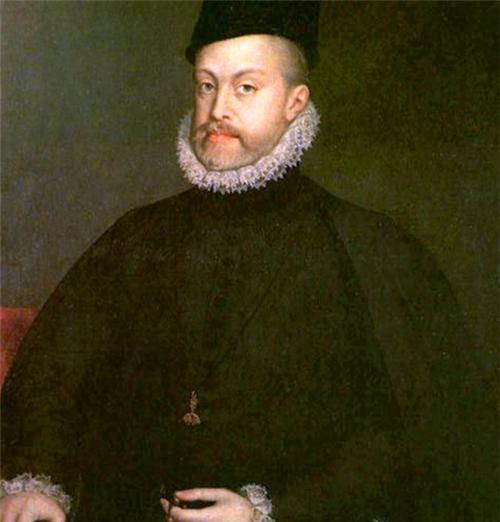In the impression of many people, the historical collision of force between China and the West dates back to the period when Zheng successfully recovered Taiwan, in fact, in the earlier Chongzhen years, the Ming Court and the Dutch had a fierce naval battle in The Bay of Luo, and ended with the victory of the Ming army, which was also the first time that the Chinese defeated the Western navy at sea.
What many people may not know is that there was almost a confrontation between the Ming Dynasty and Spain.

In the early 16th century, Spain, with its convenient geographical location, became the beneficiary of globalization, they opened colonies in Southeast Asia and the Americas, and quickly became the most powerful country in the world at that time, which was also the first empire in Europe, and Spain's heyday, the land area reached 31.5 million square kilometers, and there was also a huge navy known as the "Armada". Due to the influence of Marco Polo's travels, although the Americas temporarily satisfied the ambitions of the colonists at that time, the East, as a mysterious and rich land, still impressed Philip II, not to mention that with a large trade surplus, a steady stream of silver dollars flowed into the borders of the Ming Dynasty.
In 1570, a captain named Diego de Artieda, who traveled to and from Southeast Asia, sent his own letter to the king, saying that Philip II could completely conquer the Ming Dynasty by providing him with 80 soldiers and two warships.
As early as the 1970s, the colony of the Philippines has often written letters to Spain to report on the latest situation in China, and Viceroy Sander is a minister who strongly advocates sending troops to conquer. Sander keenly found that the Ming Dynasty at this time, because the Mongols and Jurchens in the north had a headache, heavily guarded the Beijing Division, and did not have much energy to look south, so they decisively asked for an attack.
In 1586, the head of the Spanish colonial government in Manila, church dignitaries, and senior officers, including some captains who called themselves "China Masters", began to draft a detailed plan for the conquest of the Ming Dynasty under the leadership of Sande, and finally Sander sent the letter to Philip II.
The plan showed that as long as thousands of soldiers landed in Guangzhou and occupied the main cities, the rest of the place would collapse with the wind and surrender without a fight. Philip II originally planned to send only 4,000 soldiers, but for the sake of "safety", the attack plan was eventually expanded to 12,000 Spanish soldiers, in addition to which Spain also planned to recruit 5,000 Japanese ronin to fight together through Japanese missionaries.
Just when Philip II was full of ambition, this plan did not have time to implement, it turned out that Spain at this time, was already a behemoth, but because of the perennial crusade to the west, consumed a lot of money and goods, the domestic crowd was excited, unwilling to carry out a large war, at the same time, Spain and the emerging Britain, the contradictions are gradually sharp, can no longer adjust the eyes back to Asia, until 1588, Spain's armada, by the British and Dutch navies, the plan to conquer the Ming Dynasty, it was finally stranded.
So let's boldly imagine whether Philip II would have succeeded if he had the ability and time to carry out this plan. Honestly speaking, at that time, China's firearms and technology had already suffered losses, and it can be seen from the later Ming-He naval battle that the later Ming army did not develop as large ships as Zheng He went to the West, and the ships gradually shrank, but it is worth mentioning that the Spanish on land were absolutely unable to bargain, and the Ming army at this time, in the long-term operations in the north, still maintained a relatively elite combat effectiveness, firearms did not lag behind the West too much, as for artillery, it was still ahead of the world, and if there was really going to be a war, I am afraid that philip II's dream would be reduced to empty talk.